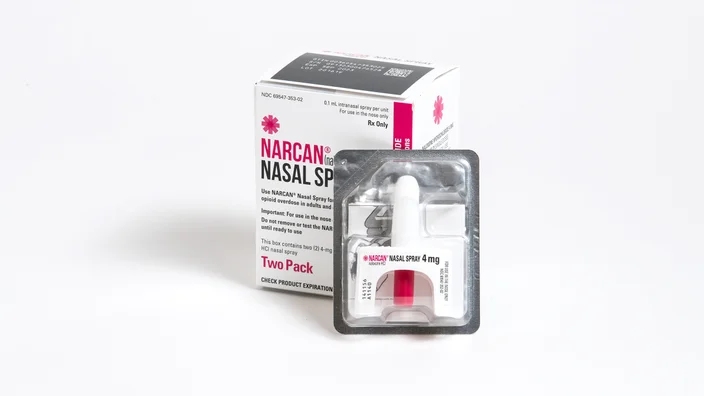The Food Drug and Administration approved over-the-counter sales of Narcan on March 29, 2023. As Maine struggles with the opioid crisis, many people at the University of Maine know or have known someone affected by substance abuse issues.
Naloxone, otherwise known as Narcan, is a medication that reverses the effects of an opioid overdose when administered in time. Narcan comes in two forms: a nasal spray and an injectable. It is non-addictive and counteracts effects on the central nervous system and respiratory system that happen during an opioid overdose.
“If you suspect someone is overdosing you can administer Narcan. Narcan has no negative effect on someone if they are not actually overdosing. Sometimes someone may appear like they are overdosing, and they have another medical situation going on,” explained Jennifer Sinclair, a harm reduction specialist at Healthy Equity Alliance. “Again, Narcan is safe regardless of if it is something else. Always give Narcan if you suspect an overdose.”
In 2023 alone, there were 1,577 overdoses in Maine, and over 1 million Americans have died of overdoses in the last two decades.
“Due to the severe impact that generational substance use disorder has had on families over the past 100 years, the current population of local adolescents and young adults has had to deal with exponentially escalating effects of this opioid crisis in all realms of their lives: socially, emotionally, communally, personally, educationally — the list goes on,” Sinclair said. “There is no untouched community; unfortunately, there rarely are any families untouched by substance use, substance abuse, and the harmful outcomes of our current opioid crisis.”
According to the Center for Disease Control and Prevention, fentanyl contributes significantly to fatal and nonfatal overdoses in the United States. Other drugs like heroin, cocaine and methamphetamine can be laced with powdered fentanyl to resemble opioids. Fentanyl is 50 times stronger than heroin, and its difficulty to test without fentanyl strips make it difficult for people to know if their drug contains the substance.
“College students are often living independently for the first times in their lives and may be experimenting with novel substances, or using substances to cope with the stress or trauma in their lives. So it’s incredibly important that students understand risks and get information and resources about how to minimize harm/risk and respond appropriately in crisis situations,” said Rob Glover, associate professor of political science and honors at UMaine.
The approval will increase access to Narcan and contribute to reducing deaths related to opioid overdoses.
Another barrier to access for the life-saving drug is stigma. Stigma often prevents pharmacies across the United States from distributing Narcan openly to those who request it as they do not want to be associated with people who use illicit substances.
“Maine has the strongest ‘Good Samaritan’ protections in the country to protect individuals experiencing an overdose (or those seeking medical assistance) from criminal prosecution for minor, non-violent crimes. And we should all be working to fight back against stigma, creating spaces in which people feel empowered to be their whole selves, share their experiences with substance use, and seek help, support, and love when they need it,” Glover said.
Sinclair explained that harm reduction are techniques that aim to decrease harm, and anyone can participate in showing compassion for all members of one’s community.
“Students can help by using language that is conducive to changing the narrative around the opioid crisis. Another way is by gaining more understanding around the legislation that is coming up and supporting Harm Reduction and Naloxboxes and better access to Narcan,” Sinclair said.
Emergent BioSolutions, the producer of Narcan, has yet to announce the price for over-the-counter sales of the prescription.
The University of Maine System Injury Prevention and Substance Use Disorder Research Collaboratives is hosting three webinars to discuss rural healthcare, focusing on substance use disorders. The first talk will be hosted this Thursday, April 13, at 11 a.m.








